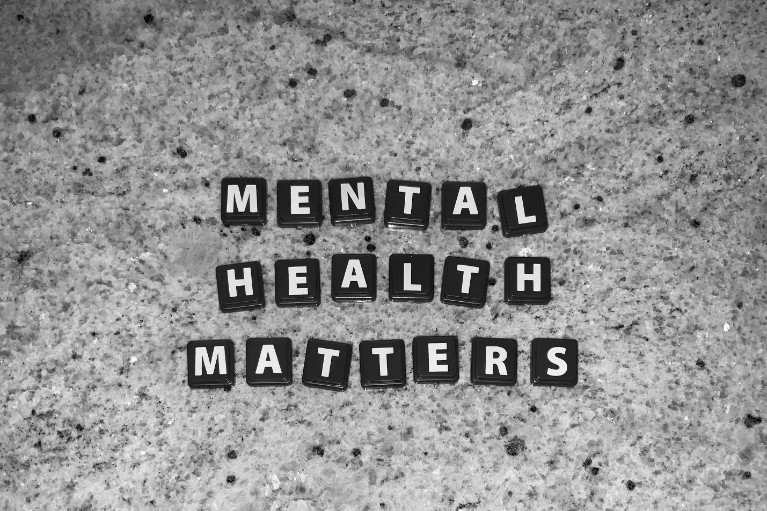Mental Health Awareness
October 7, 2021

What is Mental Health?
Mental health includes our emotional, psychological, and social well-being. It affects how we think, feel, and act. It also helps determine how we handle stress, relate to others, and make healthy choices. Mental health is important at every stage of life, from childhood and adolescence through adulthood.
Mental Health Vs. Mental Illness
Although the terms are often used interchangeable, poor mental health and mental illness are not the same. A person can experience poor mental health and not be diagnosed with a mental illness. Likewise, a person diagnosed with a mental illness can experience periods of physical, mental, and social well-being.
People can experience different types of mental illnesses or disorders, and they can often occur at the same time. Mental illnesses can occur over a short period of time or be episodic. More than 50% of Americans will be diagnosed with a mental illness or disorder at some point in their lifetime making mental illnesses among the most common health conditions in the United States:
- 1 in 5 Americans will experience a mental illness in a given year
- 1 in 5 children, either currently or at some point during their life, have had a seriously debilitating mental illness.
- 1 in 25 Americans live with a serious mental illness, such as schizophrenia, bipolar disorder, or major depression.
What Causes Mental Illness?
There is no single cause for mental illness. A number of factors can contribute to risk for mental illness, such as:
- Early adverse life experiences, such as trauma or a history of abuse (child abuse, sexual assault, witnessing violence, etc.)
- Experiences related to other ongoing (chronic) medical conditions, such as cancer or diabetes
- Biological factors or chemical imbalances in the brain
- Use of alcohol or drugs
- Having feelings of loneliness or isolation
Why is Mental Health Important for Overall Health?
Mental and physical health are equally important components of overall health. For example, depression increases the risk for many types of physical health problems, particularly long-lasting conditions like diabetes, heart disease, and stroke. Similarly, the presence of chronic conditions can increase the risk for mental illness.
Mental Health and Chronic Conditions
Mental health is important when it comes to managing chronic conditions. It is common to feel sad or discouraged after having a heart attack, receiving a cancer diagnosis, or when trying to manage a chronic condition such as pain. The same factors that increase the risk of depression in otherwise healthy people also raise the risk in people with other medical illnesses, particularly if those illnesses are chronic (long-lasting or persistent). These risk factors include a personal or family history of depression or family members who have died by suicide. However, some risk factors for depression are directly related to having another illness. For example, conditions such as Parkinson’s disease and stroke cause changes in the brain. In some cases, these changes may have a direct role in depression. Illness-related anxiety and stress also can trigger symptoms of depression.
The reverse is also true as people of all ages with depression are at a higher risk of developing certain physical illnesses. People with depression have an increased risk for cardiovascular disease, diabetes, stroke, pain, and Alzheimer’s diseases, for example. Research also suggests that people with depression may be at higher risk for osteoporosis. The reasons are not yet clear. One factor with some of these illnesses is that many people with depression may have less access to good medical care. They may have a more challenging time caring for their health
Making Connections on Mental Health
When it comes to coping with mental health related issues, what’s really important is making connections with others. Having conversations with others can help one realize that there are other people who are going through similar struggles. Reaching out to people in your life that are important to you is a good first step in starting the conversation on your mental health.
When talking about mental health it’s important to be ready to listen, and to put aside things that may be distracting. Asking open-ended questions and sharing your own experiences first can be a great way to get things going. While showing your concern and support by using phrases like “I understand” or “I’m with you” or “That sounds rough, how can I help?” lets others know that they are heard and validated. It’s important not to invalidate their feelings with language that is dismissive such as “Stop worrying so much” and “The same thing happened to me” because it may discourage the person from sharing more about what they are feeling. Lastly, you should end each conversation on a positive note; close with some helpful words and make plans to stay connected.
If you or a loved one are experiencing mental health related issues find out more information and resources online at www.howrightnow.com

